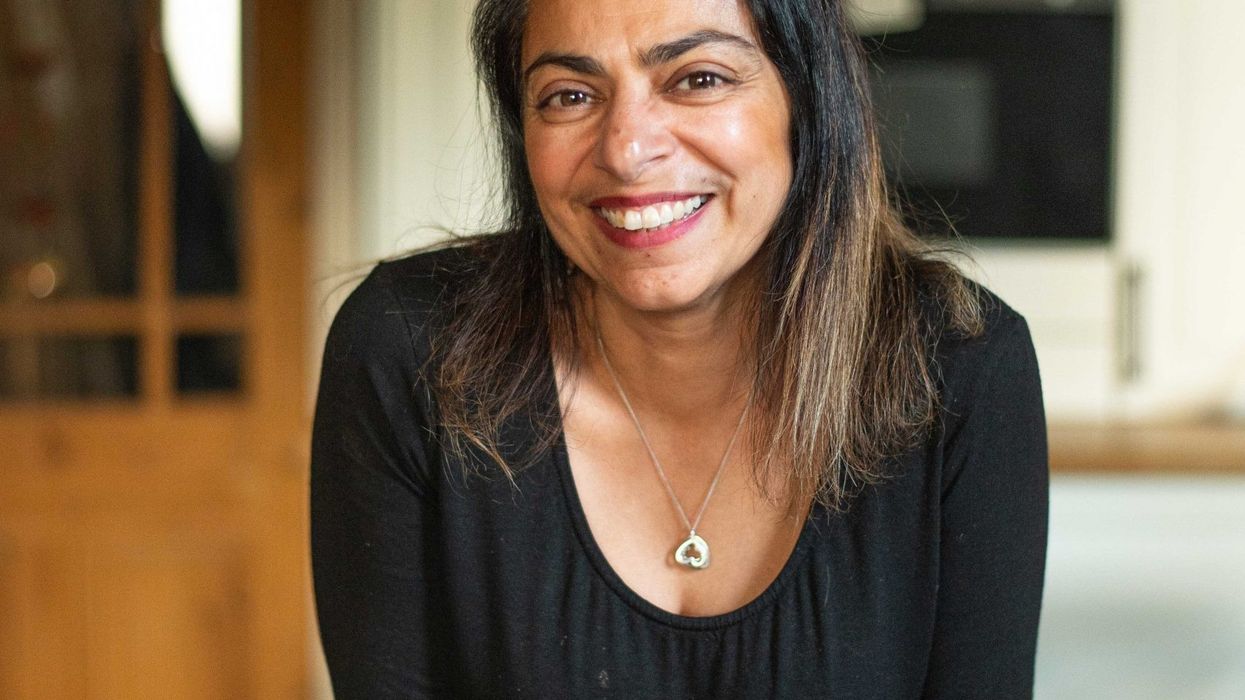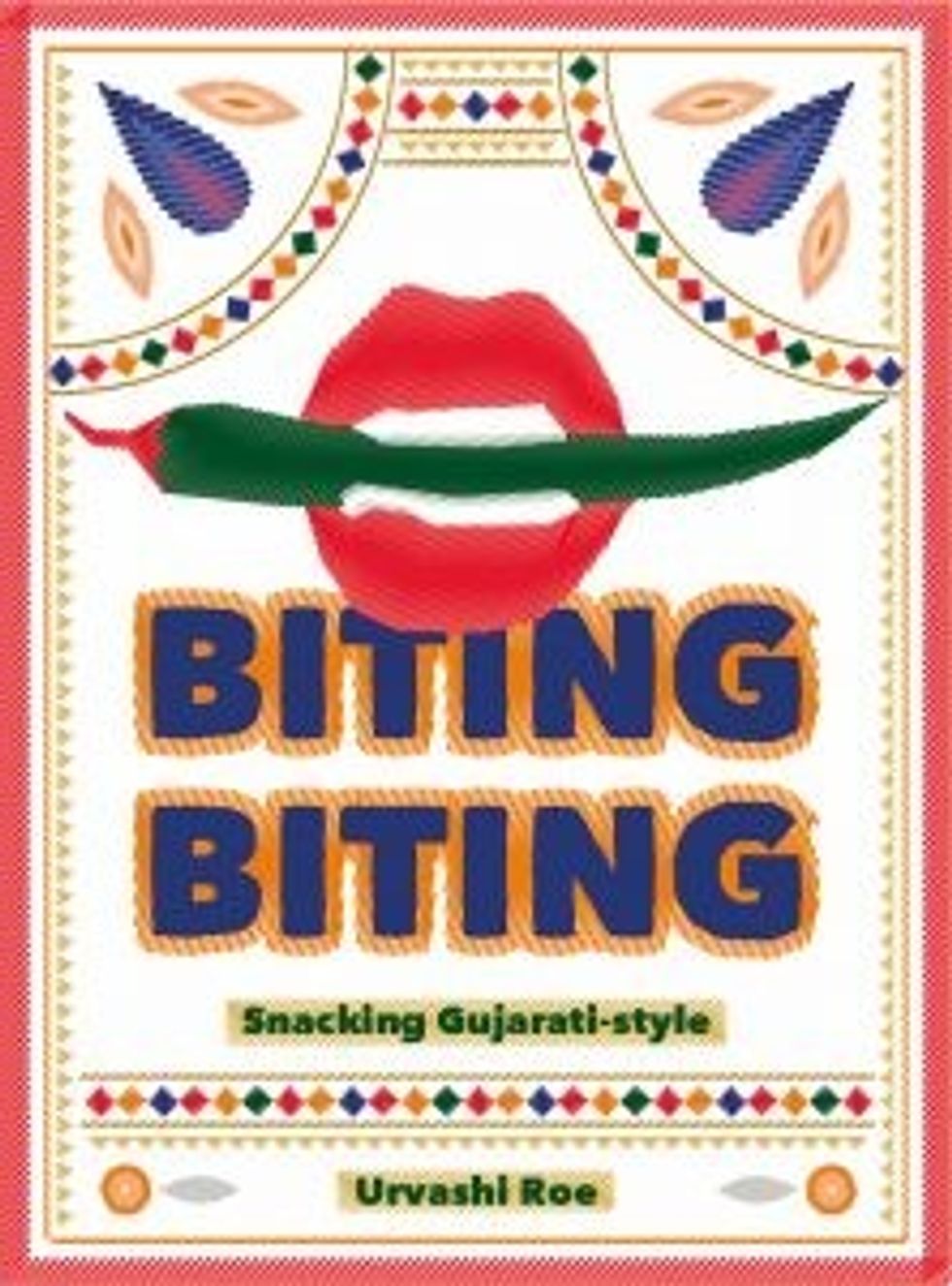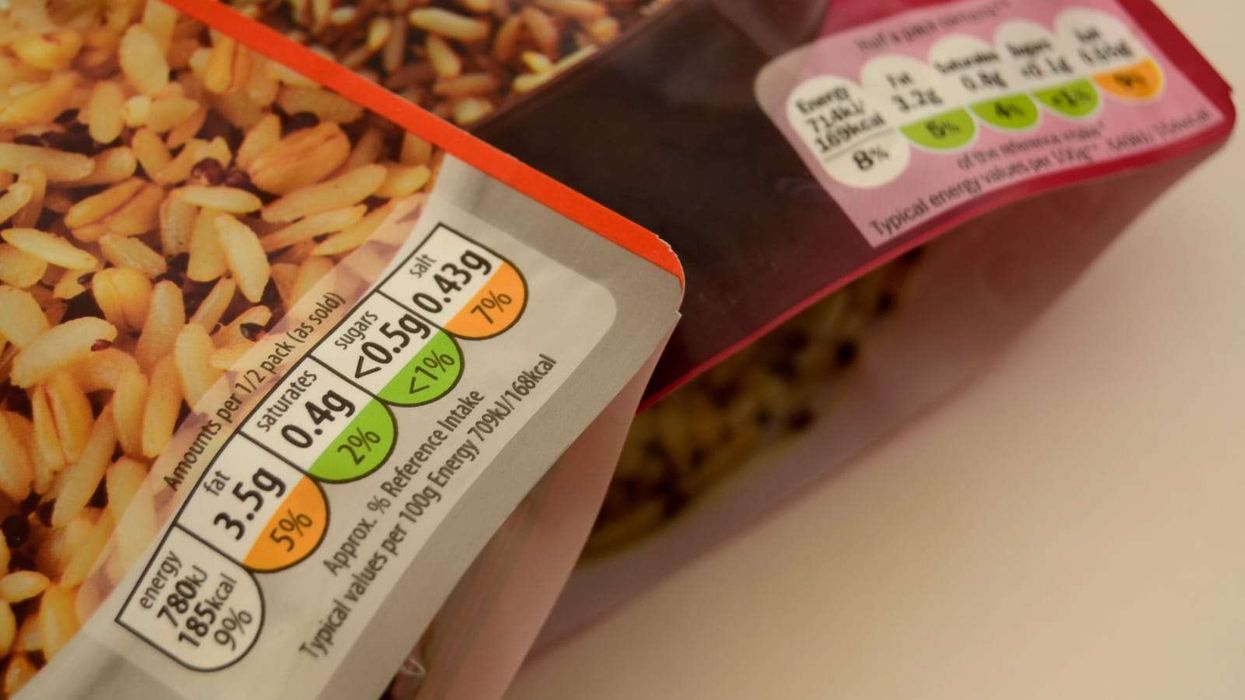Urvashi Roe discusses her new cookbook and gives top tips
Brand new cookbook Biting Biting – Snacking Gujarati-style celebrates an old family tradition of being able to quickly whip up food for impending visitors or last-minute unannounced guests.
Working mother Urvashi Roe has come up with a sumptuous book loaded with delicious recipes that modernise and simplify much-loved Gujarati dishes, ranging from quick snacks to drinks. She also tells the history behind the many quick and easy-to-follow recipes in the essential kitchen companion. This book is the latest offering from a British powerhouse, who is currently a global director at KPMG, was a quarter-finalist on Great British Bake Off and has run successful businesses.
She discussed her new book with Eastern Eye and gave some top cooking tips.
What first connected you to cooking?
I started cooking when I was still at primary school. Mum taught me to make basic shaak and rotli. I still have the same velun (rolling pin).
What inspired you to write this book?
I wanted to capture our Gujarati ethos of hospitality. This is a characteristic which is embedded in all of us from such a young age. I don’t remember ever visiting family without food being the centrepiece of conversations. I also wanted to share our ethos of sustainability. In my family, we never waste anything. Even the smallest portions of leftovers can be turned into another meal by adding a little of this or that. This is so important in today’s society.
Tell us about your book Biting Biting – Snacking Gujarati-style?
The book is a tribute to snacking – a selection of easy recipes that you can rustle up with leftovers or key store cupboard ingredients. The recipes are mostly Gujarati but simplified for the busy lives we lead today.
How important was it for you to tell your own story in the book before sharing the recipes?
Very important. I am an immigrant of immigrants. Like many Gujaratis, my grandparents were native to India but travelled and settled in Tanzania, and then onwards to the UK in search of a better life. It is this rich history that has evolved and shaped the food I eat today. I believe you don’t really know who you are unless you know where you come from.
How did you select your various recipes?
I just included all my favourites like kichee, shrikhand and mithi sev. Then I wanted to pay tribute to my family and friends, and honour the good times we had together, with (food like) pau bhaji, seero and bhajia. I also wanted to include the east meets west type recipes I have enjoyed with my English husband such as cheese and chevro sandwiches, tomato onion shaak on hummus, and vaghareli pasta. Finally, I wanted to make sure I included really simplified versions of Gujarati classics like rotli, kachori, dhokra and burfi.
Do you have a favourite dish in the book?
Yes. I am a huge fan of shrikhand. I had this at my pre-engagement celebration, engagement, wedding, and baby shower. Every important occasion. But I never have time to make it the traditional way, so my fatafat shrikhand is a favourite dish in the book. I can make it quickly whenever I fancy, and it tastes just like the one my daya fai makes.
Which section did you enjoy writing most?
Shaak. This is such an essential part of Gujarati cuisine, and you can get really creative once you know the basics. I really enjoyed sharing the different types of shaak we have and how you can create so many different combinations – plain, raso-varu and akhu shaak, among others.
How important is it to learn about spices?
I think many people are put off by Indian cooking because the list of spices can be endless and daunting. I hope my masala dablo gives people a view of the bare minimum list of spices, so they can stick to these basics at first. Then I hope the variations I have given help them to build confidence, adding other spices that suit their taste.
What is your top cooking tip?
Invest in a good wok with a lid. I know it’s not traditional Gujarati equipment, but I make almost everything in mine – from dhokra and rotli to bhajia and burfi. Everything.
Is there a tip you would give beginners?
I would say start by exactly following the recipe a few times. Then experiment and adapt to really make the recipe something that is tailored to you, and your tastes.
How much has your upbringing shaped your cooking and dishes shared in the book?
Hugely. I am a confident cook because instead of letting me eat ‘ghasiya’ (rubbish), my mum pushed me to learn how to cook from a young age and taught me never to waste. We didn’t have much when we first arrived in England, but we always ate freshly made food. I also learned a lot through relatives like my masis, kakis and didis because, throughout my upbringing, I have been surrounded by extended family. The dishes in the book are a tribute to that extended family culture.
What do you love most about Gujarati cuisine?
Gujarati cuisine is simpler compared to other Indian regional cuisines.
What inspires you?
My daughters. Seeing life through their eyes and seeing how they strive to retain a sense of being Gujarati in today’s modern Britain is a huge sense of inspiration for me. They make me very proud.
Why should we pick up the book?
Because everybody needs some Biting Biting inspiration. My book is full of ideas, big and small, which you can rustle up when your sassu (mother-in-law) calls and says she is coming over in half an hour. Don’t panic. Pick up my book and take a look at what tasty treats you can rustle up.
Biting Biting – Snacking Gujarati-style by Urvashi Roe, £20 is published by Kitchen Press (www.kitchenpress.co.uk). www.urvashiroe.com and Instagram: @urvashiroe













